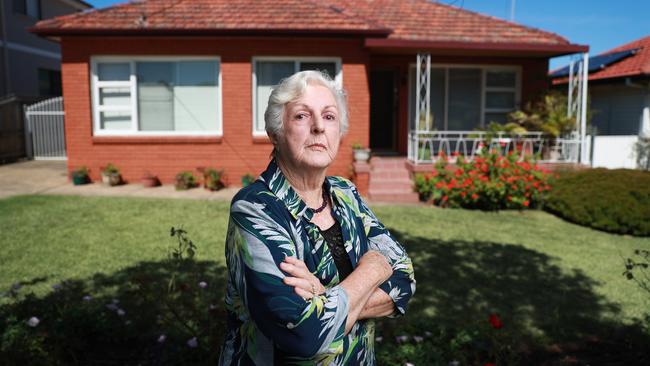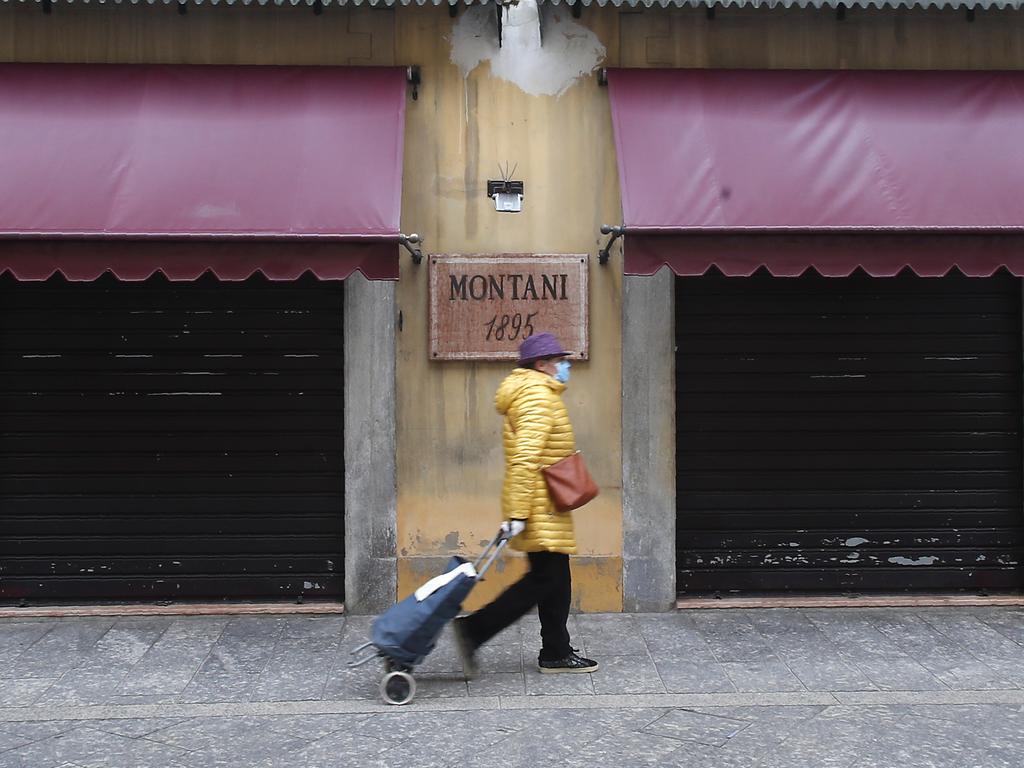Coronavirus: Keep away from the grandkids and survive
Coronavirus has created a new normal for Australians, but its impact is potentially dire for older generations.

The turbulence of coronavirus has created a new normal for Australians and the way they live their lives — but its impact is potentially dire for those with most to lose: the nation’s older generations vulnerable to serious illness and death.
Health authorities say the survival of people aged over 60, and especially over 80, will depend on them accepting dramatic measures to avoid contracting the disease far and above those for the general, younger community.
Social distancing, recommended for all, is more extreme for older people. The new rules for months ahead will be no grandchildren visits, exclusion from public places and even cancellation of non-essential doctors’ appointments.
Older Australians have been advised to stockpile several months worth of prescription medicines. At all times, they are told to exercise rigorous hygiene and clean home surfaces touched by others.
As reports surface about elderly Australians succumbing quickly to the virus, the experience in China where COVID-19 started presents the reality in stark terms: a 15 per cent death rate for the elderly, but less than 1 per cent for the under-50s.
The Australian government’s “war footing” takes on enormous significance for the nation’s older generations already coping with reduced immunity or underlying medical conditions such as heart disease or diabetes.
While the over-65s represent about 15 per cent of our population, they account for 42 per cent of hospital admissions, and almost half of all hospital stays.
If Australia’s ageing population is hit with coronavirus, hospital intensive care units now full to capacity will be stretched beyond their limits.
Doctors will be forced to make life-and-death choices: treat the elderly, or the fit and young with better chances of survival.
Margaret Wilkinson, 90, a retired teacher from Rydalmere in Sydney’s northwest, says she felt “rather unwanted and disappointed” to learn that older people could be treated differently, even denied the best care, before realising she’d lived a long life.
“If anyone has to go, it might as well be me,” Ms Wilkinson says. “I’m not looking to have the virus take me out, I’d rather go in my sleep. I’m going to stay inside as much as I can, and see it out.
“There’s always the chance someone could come in and I’d get it. I’ve got just about every condition that makes you vulnerable — diabetes, asthma, kidney problems, heart trouble — so I’d be a candidate.”
Putting kids first
Roy Pickering, an 88-year-old former building manager from Miranda in Sydney’s south, says he would not survive for long if he contracted the virus, but has no trouble with the suggestion younger people should receive preferred treatment.
“I’ve got a lot of younger people I know, my grandchildren,” he says. “It’s like saying, do you want your granddaughter or grandson to live, or you? There’s no question I’d rather they treat them.”
Mr Pickering accepts health authorities are trying to reduce the virus spread so that hospital services can be shared more evenly and tough decision-making, occurring already in countries such as Italy, can be avoided. “If push comes to shove, they may have to do it,” he says.
Lessons from Italy
David Paterson, director of the University of Queensland’s Centre for Clinical Research, says the challenge of COVID-19 for older Australians is very difficult. “Older people can rapidly progress to pneumonia, end up in hospital, and die,” he says.
The mistake made in Italy when schools were closed, Professor Paterson says, was that parents were able to keep working in many instances by having children minded at home by grandparents, who then became infected. Many had since died.
As Australia grapples with how to cope, he has no answer on possible school closures but says children can be infectious without showing symptoms – and what happened in Italy would be devastating if replicated here.
Professor Paterson advocates “video interaction” using Facebook or Skype as the safest, practical way for older people to communicate with family and the outside world, although he accepts many elderly are naive about technology, or it is beyond their capability.
He is also acutely aware of other problems.
With “social distancing” comes social isolation and loneliness, he says. It is already experienced by many elderly and could be magnified on a grand scale with new restrictions.
Trouble in store
Access to groceries and fresh food looms as an existential issue for many elderly people who receive home deliveries, with delays of a week or more from the major supermarket chains, and the unavailability of certain items.
Extraordinary demand has left Coles and Woolworths struggling to cope. Woolworths has introduced a “dedicated” early shopping hour for the elderly and disabled, but the option is no comfort when panic buyers are scoring many months’ supply of toilet paper, leaving stores with no rolls for those who have run out.
Social distancing, meanwhile, is impossible as a guaranteed defence for thousands needing regular home care, living in aged-care centres and nursing homes or relying on Meals-on-Wheels.
Dangers of caring
Mark Walker, director of the Australian Infectious Diseases Centre, says the elderly and sick should be the group that takes most seriously the government’s message about limiting contact with others in the community.
“But those in nursing homes or who receive nursing (visits) in their own homes come directly into contact with carers,” he says.
“It’s very important to prevent them coming into contact with others who might have symptoms that have been described as similar to those for COVID-19.”
With nursing contact unavoidable, the onus then comes down to the nursing staff to practise good hygiene and so ensure their own isolation if they feel unwell.
In nursing homes where residents exhibit symptoms similar to COVID-19 but are not moved to hospitals, the responsibility falls on management to disinfect and isolate the infected to areas away from other residents and cared for by only one or two staff using masks and other precautions to stop the spread of infection more widely.
Creeping bias
Professor Paterson says the difficulty in many aged-care centres is that staff are not well paid, may not have much education and could come from nations with different customs. “The spread of infection can be very rapid unless you take precautions and limit the spread,” he says. His clinical group is about to start a medical trial specifically aimed at helping elderly who have contracted COVID-19 by using drugs previously used to treat HIV and malaria, plus a combination of both, while the potentially year-long search continues for an effective vaccine.
Professor Paterson says the combined HIV and malaria treatment has been used by China with some success for older patients, even in killing the virus. Over the past few weeks, he says, he has observed some “ageism” creeping into the attitudes of treating clinicians.
Studies have shown, he says, that patients aged 79 are often considered “subconsciously” as part of an 80-plus age group and suffer undue discrimination: decision-making on how to treat them is sometimes judged according to perceived physical age rather than their underlying state of health.








To join the conversation, please log in. Don't have an account? Register
Join the conversation, you are commenting as Logout